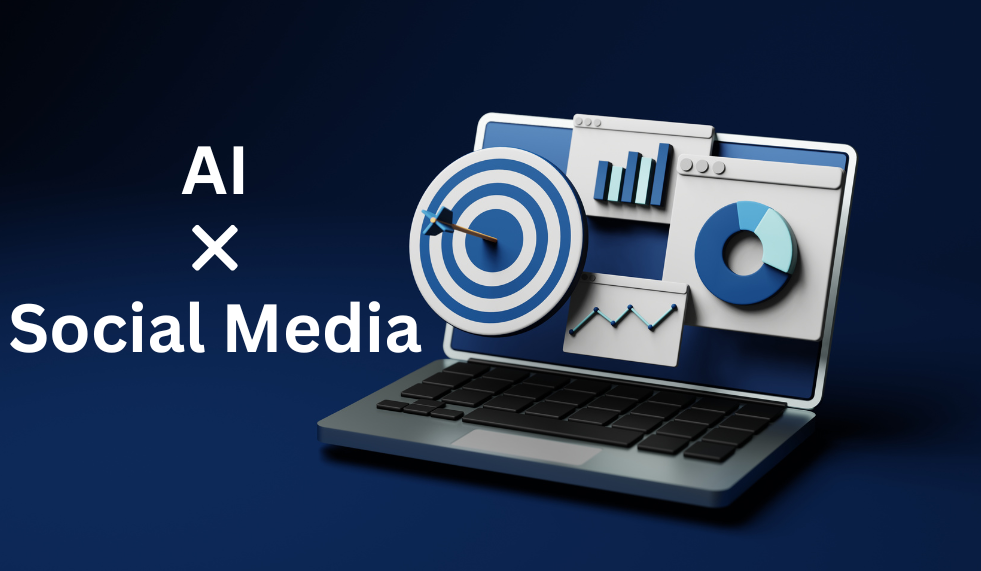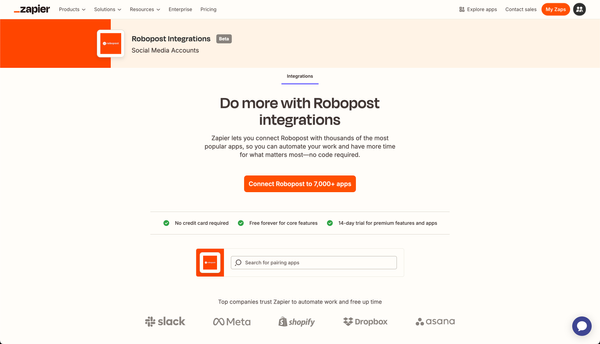How AI Technologies Are Making Social Media Management More Effective
Explore how AI is transforming social media management, enhancing content creation, audience engagement, and strategic insights.

AI is changing how social media is managed. By using AI, businesses can create better content, engage with their audience more effectively, simplify their processes, and gain valuable insights on a large scale. This article looks at how AI is improving social media management, including its benefits and future trends.
Key Takeaways
- AI technologies help create content automatically and personalize it, which boosts user engagement and strengthens the brand's presence.
- Advanced AI tools can analyze how audiences feel and predict future engagement trends, allowing for timely and effective interactions.
- AI-driven automation streamlines processes across different platforms, cutting down on manual work and mistakes.
- Insights from AI analytics assist in making smart decisions, improving return on investment (ROI), and understanding competitors.
- New AI technologies, combined with other digital tools, are expected to change social media management even more, providing new chances for innovation.
Enhancing Content Creation with AI
AI technology has changed content creation by automatically generating text, images and videos. This speeds up the process and keeps content consistent across different platforms.
AI-driven Image and Video Editing
Advanced AI tools improve the quality and attractiveness of visual content. They can automatically adjust lighting, color, and arrange elements to make the media more appealing.
Content Personalization Techniques
AI analyzes user data to customize content based on individual preferences and interests. This makes the content more engaging and relevant, increasing the chances it will be read and shared.
Improving Audience Engagement
Sentiment Analysis Tools
Sentiment analysis tools use AI to understand and categorize the emotions in social media posts. This helps brands gauge how their audience feels and adjust their communication strategies accordingly. These insights make it easier to connect with users on an emotional level.
Predictive Analytics for Engagement
Predictive analytics use past data and AI to predict future engagement levels. This helps social media managers choose the best times to post and what content to share for maximum interaction. By using these predictions, brands can adapt their strategies to audience preferences in real time.
Real-time Interaction Automation
AI tools can automate responses to user questions and comments instantly. This improves user experience by providing quick feedback and allows human team members to focus on more complex tasks. Real-time automation helps boost engagement rates and keeps the brand consistent across different platforms.
Streamlining Workflow Automation
AI-powered Scheduling Tools
AI scheduling tools are changing how social media teams plan and post content. They use past engagement data to find the best times to post for maximum visibility and interaction. These tools also let you schedule posts for multiple platforms from one place, making management easier.
Task Automation in Social Media Teams
Automating tasks in social media teams boosts productivity by handling repetitive tasks like formatting posts and basic interactions with followers. This lets team members focus on more important tasks, such as creating content and managing communities.
Efficiency in Multi-platform Management
Managing multiple social media platforms can be challenging. AI tools simplify this by offering a single interface to monitor and manage all platforms. Tools like Robopost saves time and ensures consistent messaging and branding across different channels.
Advanced Analytics for Strategic Insights
Behavioral Analytics
Behavioral analytics on social media helps businesses understand how users interact and what they like. By looking at actions like clicks, likes, and shares, companies can adjust their content and interactions to better fit their audience's interests. This approach leads to better engagement and satisfaction.
Competitor Analysis Using AI
AI tools allow businesses to track and analyze their competitors' social media strategies in real-time. This information helps companies quickly adjust their own tactics to stay ahead. Using AI for competitor analysis saves time and provides a clear picture of the market.
ROI Measurement and Optimization
Measuring and optimizing ROI (return on investment) is important for proving the value of social media spending. AI tools make it easier to track conversions and engagement accurately, helping businesses make better decisions about where to invest their resources for the best results. This allows for more efficient use of resources and better returns.
AI in Social Media Advertising
Targeted Advertising Algorithms
AI technologies have revolutionized the way ads are targeted on social media platforms. By analyzing vast amounts of user data, including interests, behaviors, and demographics, AI enables highly targeted advertising that significantly increases the relevance and effectiveness of ad campaigns.
Cost Optimization
AI not only enhances ad targeting but also optimizes the spending on ad campaigns. It achieves this by continuously analyzing the performance data and adjusting the budget allocation to maximize ROI. This dynamic approach ensures that every dollar spent is used effectively.
Ad Performance Analysis
To further refine social media advertising strategies, AI tools analyze the outcomes of ad campaigns in real-time. This analysis helps in understanding which ads perform well and why, leading to more informed decisions in future campaigns. The insights gained from AI-driven analysis are crucial for continuous improvement and success in social media advertising.
Enhancing Security and Compliance
Fraud Detection Systems
AI technologies significantly enhance the ability to detect fraudulent activities on social media platforms. By analyzing patterns and user behavior, AI can identify anomalies that may indicate fraudulent behavior. This proactive approach helps in maintaining the integrity and trustworthiness of platforms.
Data Privacy Management
Managing user data privacy is crucial. AI tools help in automating the protection of user data by enforcing privacy settings and monitoring access controls. This ensures that user information is handled securely and in compliance with global data protection regulations.
Regulatory Compliance Automation
Automating compliance tasks with AI reduces the risk of human error and ensures that social media platforms adhere to various legal and regulatory standards. AI compliance tools can automatically update policies and procedures in response to changing laws, making compliance management more efficient.
The Role of AI in Influencer Marketing
Identifying Potential Influencers
AI technologies are revolutionizing the way brands identify potential influencers by analyzing vast amounts of data to pinpoint individuals whose audience and engagement levels align with the brand’s target market. Machine learning models predict potential reach and impact, making the selection process more strategic and data-driven.
Optimizing Influencer Partnerships
Effective influencer partnerships are crucial for campaign success. AI helps in optimizing these partnerships by providing insights into the best content strategies and engagement practices. This ensures that collaborations are not only based on popularity but also on data-backed strategies that enhance campaign performance.
Tracking Influencer Campaign Performance
AI tools are integral in tracking the performance of influencer campaigns. They provide real-time analytics and detailed reports on engagement rates, audience growth, and ROI. This allows marketers to make informed decisions and adjust strategies promptly to maximize campaign effectiveness.
Future Trends in AI and Social Media
Emerging AI Technologies
The landscape of AI technologies is rapidly evolving, with new tools and applications appearing at an unprecedented rate. Innovations in machine learning, natural language processing, and neural networks are set to revolutionize how social media platforms operate and interact with users.
Integration with Other Digital Tools
AI is not an island. Its integration with other digital tools like CRM systems, analytics platforms, and marketing automation tools enhances its utility and effectiveness. This synergy creates a more cohesive digital strategy, allowing for seamless user experiences and more efficient data management.
Predictions for AI in Social Media
The future of AI in social media looks promising with predictive capabilities becoming more sophisticated. AI will not only understand user preferences but also anticipate future trends, enabling proactive content creation and engagement strategies. This will lead to a more personalized and engaging user experience.
Conclusion
AI technologies are revolutionizing the field of social media management by enhancing efficiency, personalization, and strategic decision-making. From automating routine tasks to providing deep insights into user behavior, AI tools empower social media managers to create more engaging and targeted content. As these technologies continue to evolve, they promise to further transform the landscape of social media, making it more dynamic and impactful. Embracing AI in social media strategies is not just beneficial; it's becoming essential for staying competitive in the digital age.
